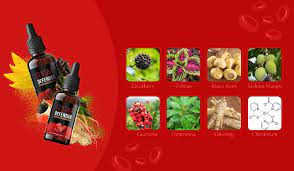Medicines stand as a cornerstone of modern healthcare, offering remedies for ailments, easing suffering, and prolonging lives. From ancient herbal concoctions to cutting-edge pharmaceuticals, the journey of medicines mirrors humanity’s relentless quest for healing and relief. As we delve into the multifaceted world of medicines, it becomes Sugar defender drop reviews that their impact extends far beyond mere treatment; they symbolize hope, progress, and the triumph of science over adversity.
Ancient Wisdom, Timeless Remedies
The roots of medicine trace back to ancient civilizations, where healers relied on a blend of empirical knowledge and spiritual beliefs to alleviate illnesses. Ancient Egyptian papyri and Chinese herbal texts reveal a treasure trove of botanical remedies and therapeutic practices that formed the basis of early medical systems. These ancient healers recognized the healing properties of plants, minerals, and animal extracts long before the advent of modern pharmacology.
The Renaissance of Medicine
The Renaissance era marked a pivotal turning point in the evolution of medicine, characterized by a resurgence of scientific inquiry and anatomical exploration. Visionaries like Leonardo da Vinci and Andreas Vesalius revolutionized our understanding of human anatomy through meticulous dissections and anatomical drawings. Concurrently, the era witnessed the rise of medical pioneers such as Paracelsus, who challenged prevailing medical dogmas and advocated for empirical observation and experimentation.
The Age of Discovery: Triumphs and Challenges
The 19th and 20th centuries witnessed unprecedented advancements in medical science, driven by groundbreaking discoveries in microbiology, pharmacology, and immunology. Louis Pasteur’s germ theory of disease and Robert Koch’s identification of specific pathogens laid the foundation for modern infectious disease control. The discovery of antibiotics by Alexander Fleming and the subsequent development of vaccines heralded a new era in public health, saving countless lives and eradicating once-deadly diseases.
However, with progress came challenges. The misuse and overuse of antibiotics led to the emergence of antimicrobial resistance, threatening to render these life-saving drugs ineffective. Moreover, the rising cost of pharmaceuticals and healthcare disparities underscored the need for equitable access to medicines, a challenge that continues to confront healthcare systems worldwide.
The Pharmaceutical Revolution
The 20th century witnessed the birth of the pharmaceutical industry, marking a paradigm shift in the production and distribution of medicines. From penicillin to insulin, pharmaceutical companies developed a myriad of synthetic drugs that revolutionized medical treatment and management of diseases. The development of targeted therapies, biologics, and gene-editing technologies in the 21st century ushered in a new era of precision medicine, offering personalized treatments tailored to individual patients’ genetic makeup and disease profiles.
Beyond Pharmaceuticals: Exploring Holistic Approaches
While pharmaceuticals play a crucial role in modern medicine, there is growing recognition of the importance of holistic approaches to health and wellness. Complementary and alternative medicines, ranging from acupuncture to herbal remedies, offer alternative avenues for healing and symptom management. Integrative medicine models, which combine conventional treatments with complementary therapies, are gaining traction as patients seek more comprehensive and personalized approaches to healthcare.
Looking Ahead: Challenges and Opportunities
As we stand at the precipice of a new era in medicine, characterized by rapid technological advancements and unprecedented scientific breakthroughs, it is essential to address the challenges that lie ahead. Issues such as healthcare access, drug affordability, and sustainability must be tackled to ensure that the benefits of modern medicine reach all segments of society. Furthermore, continued investment in research and innovation is paramount to addressing emerging health threats, from global pandemics to the growing burden of non-communicable diseases.
In conclusion, medicines have transformed the landscape of healthcare, offering hope and healing to millions around the globe. From ancient remedies to cutting-edge therapies, the journey of medicines reflects humanity’s enduring quest for better health and well-being. As we navigate the complexities of modern healthcare, let us remain committed to harnessing the power of medicines to build a healthier, more resilient world for future generations.
